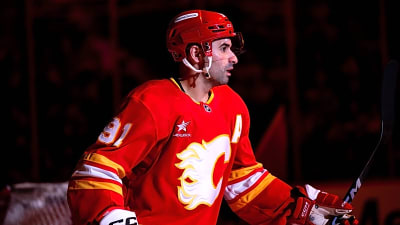The surfing universe was a brighter place with Jack McCoy in it. Sadly, after several years of health issues, the legendary filmmaker has gracefully kicked out.
“Give those you love a big Jack McCoy heart to heart hug today,” shared Jack’s family on Instagram. “You never know when you’ll be able to share that last breath together. Go out and get a bomb today for the big guy."
There really is no way to summarize what Jack meant to surfing or how he changed the sport and culture for the better. From his earliest days as a gremlin in Hawaii to his final run of shows in Australia, he always believed in the beauty, the spiritual power of surfing and the relationship surfers have with the ocean. It was his guiding light. From groundbreaking films like “Storm Riders,” to the storytelling of the “Occumentary,” and the revolutionary return to roots that was the Billabong Challenge series, through his lens and inherent thoughtfulness, Jack’s vision became surfing’s vision.
“A challenge?! I love a challenge!”
That was the war cry every time my brother and I tried to surf on the stormy, desolate Sonoma coast when we were kids. Jack had just unveiled the Challenge at Gnarloo in his film “Psychedelic Desert Groove.” It had adventure. It had character. It had candor. It had everything a grom could ask for in a VHS tape half a world away.
Some years later I’d be on a boat in Tahiti with Gordo the Great, one of the most animated characters and truest long lenses to ever shoot a Championship Tour contest, and come to learn that he was the dude that uttered those lines in the film. I still make him say, “A challenge?! I love a challenge!” every time we’re together. And because he’s that kind of guy, he dutifully obliges.
Point being, in the illustrious career of Jack, it’s the little anecdotes, the subtle humor, and the constant humanity that’s perhaps been more impactful than his acclaimed water shots.
“A lot of guys that make surf movies stand in one spot on the beach. I ask them why they don’t move around and they say they don’t want to miss a shot. There’s an old Hollywood saying that goes, ‘If I didn’t get it, it didn’t happen,’” Jack chuckled in a conversation we shared years ago.
“One of the great things is that in those earlier surf movies was that there were water shots,” he continued. “I’ve always felt that the water shots is what was missing in a lot of movies. To me it’s everything.”
Jack was born in Kailua, Hawaii, and grew up alongside Gerry Lopez, Dennis Pang, and the revolutionary late-60s generation of North Shore standouts. After traveling to Australia in 1970 with Pang, Lopez, and his crew, Jack decided to stay in Australia, avoiding the Vietnam Draft in full swing at the time in the US. After meeting filmmaker Dick Hoole, and inspired by his affinity for the work of Bruce Brown and other early 1960s surf filmmakers, the two set out to make their first full length surf film, (In Search Of) Tubular Swells, which was released in 1976, and starred Larry Bertelmann, Rabbit Batholomew, and much of the era’s most high profile talent.
Over the next five decades Jack would come to define water cinematography, pioneering practices within water photography and cinematography that are still used today, and leaving behind more than 25 masterpieces of the surf film form: Storm Riders (1982), The Green Iguana, The Occumentary, Sabotaj, Blue Horizon, Free as a Dog, A Deeper Shade of Blue, snd especially his massively influential and still unmatched Billabong Challenge, which brought the world’s best surfers to remote Western Australia for the first event of its kind. The success of the subsequent film and impact of the event is often credited with the birth of the so-called Dream Tour, pairing the world’s best surfers with the world’s best waves.
For his lasting contributions to surf culture through his films, McCoy was inducted into the Surfing Walk of Fame in Huntington Beach, California in 2013, and this year received the , Australian Surf Industry Association's Service to the Industry Award.
In the early 1980s, Jack was in living in Los Angeles while finishing up one of his films. Through one of his contacts he’d finagled a spot to stay in a mansion in the Hollywood Hills. In the afternoons, while he was working on his edits, the other guests in the house would come to check in on his progress. It happened to be rock star David Bowie and Monty Python legend Eric Idle. The two convinced Jack that he wasn’t just making surf movies, he was making art. Freeing him up to chase his dreams and visions, the moment forever altered the way Jack viewed himself and his work.
“Music is 50 percent. I pick all my music,” Jack explained, who later in life teamed up with The Beatles’ Paul McCartney to work on visuals for some of his music. “I’m just an old rock ’n roller, and when you have access, to what I consider to be the world’s best band, and you are friends with them and can use their music, I can’t help myself.”
There will rightly be a lot of beautiful words shared about Jack. He was a profound individual that changed the world in profound ways. In his own, casual, mellow way, he fought for the ocean. He fought for artists. He fought for surfing. He made countless films and shared countless stories. But at the end of it all, he was a friend in the truest sense. He was a friend to anyone that knew him. Caring, compassion, his humanity far exceed his career accomplishments—which says a lot. Jack had a heart of gold and will be profoundly missed.
More must-reads:
- Baker Mayfield stands by Brent Venables ahead of crucial 2025 season
- Bengals owner remains optimistic about Trey Hendrickson extension
- The 'Single-season sack leaders by NFL team' quiz
Breaking News
Trending News
Customize Your Newsletter
 +
+
Get the latest news and rumors, customized to your favorite sports and teams. Emailed daily. Always free!








